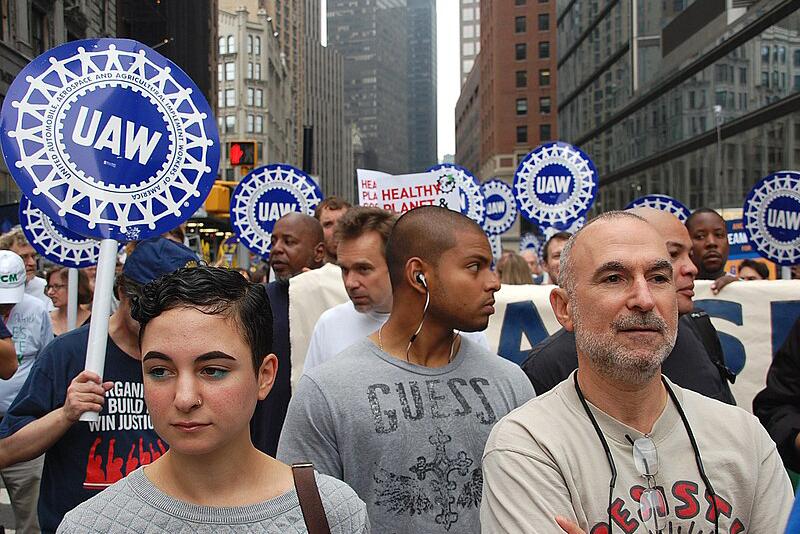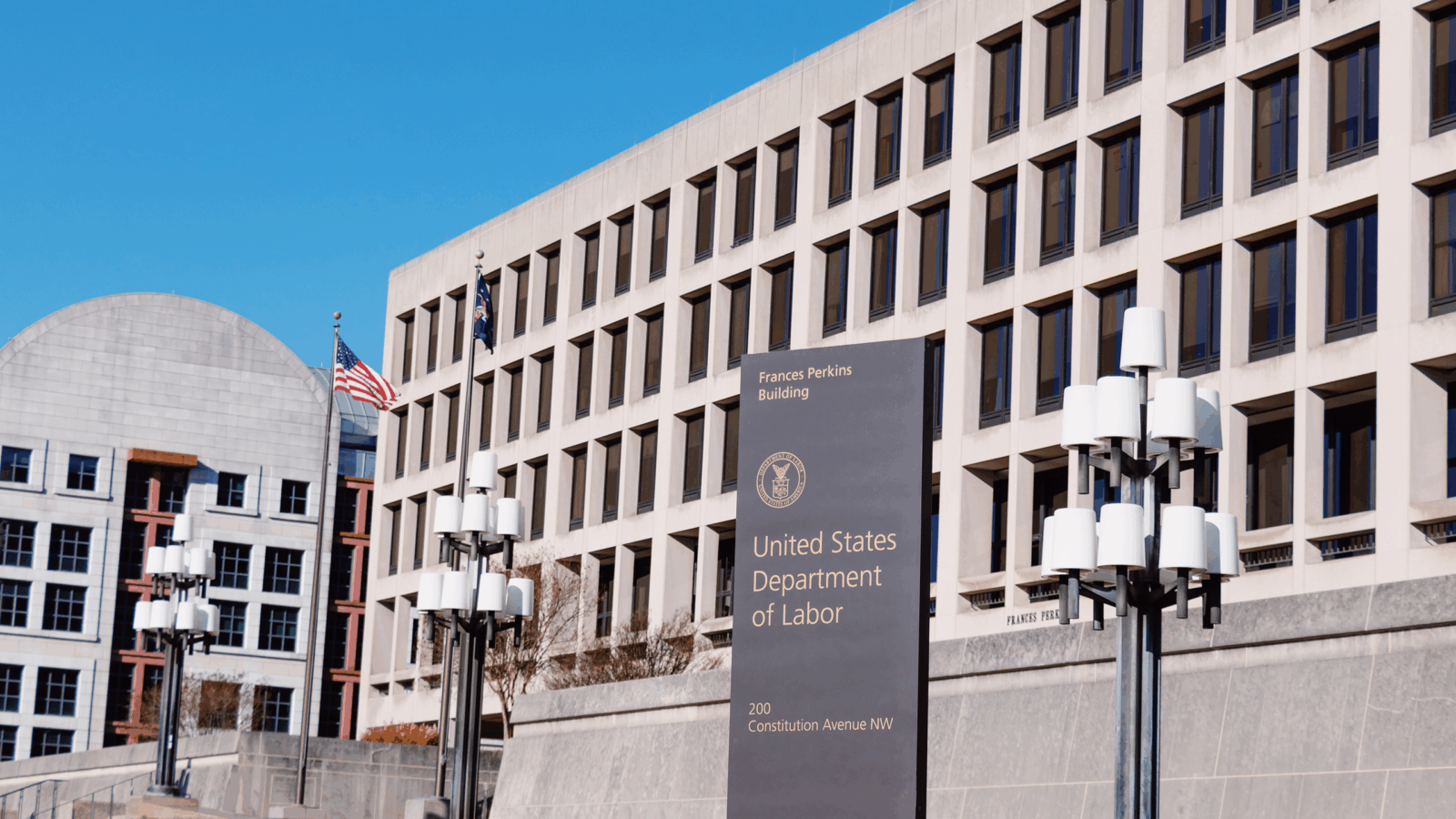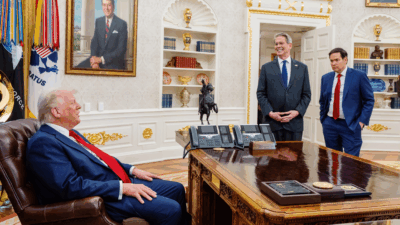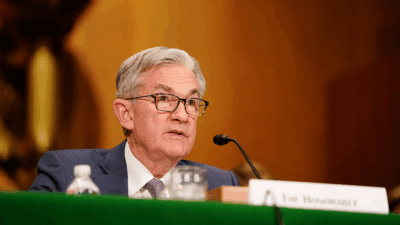
Sign up for smart news, insights, and analysis on the biggest financial stories of the day.
The Big Three automakers may soon hit a speed bump in their drive toward an electric future.
United Auto Workers President Shawn Fain has said 150,000 members are ready to strike against Ford, Stellantis, and General Motors if the companies don’t meet their demands during contract negotiations, which kicked off this week.
Which Side Are You On?
Cornell’s ILR Labor Action Tracker logged 417 strikes and seven lockouts across the US in 2022 — up 52% from 2021 — as historically low unemployment rates have boosted workers’ leverage for improving wages and benefits.
UAW leaders recently laid out their top bargaining issues ahead of contracts that expire in September. They include reinstating a cost-of-living adjustment eliminated during the Great Recession, stronger job security, additional training programs, and dismantling tiered pay systems of varying wages and benefits. Fain, who was elected union president earlier this year, says he’s taking a more cut-throat approach to the role than his predecessors:
- A lack of an agreement could end up costing automakers billions of dollars. In 2019, a 40-day strike against GM cost the company $4 billion in lost vehicle production, about twice as much as Wall Street analysts had predicted.
- Negotiations between workers and companies won’t start with the customary handshake. “I hear some of the CEOs talk about how ‘our workers are like family.’ That’s nothing but a lie,” Fain told Detroit Local 4 News. “When our workers have economic justice, then we’ll shake hands. But until then, there’s no point in having some pomp and circumstance.”
Not So Special Delivery: In other transportation-related strike news, UPS drivers are considering walking off, too, which could devastate the package delivery business. Roughly 340,000 Teamsters union members could stop showing up when their contract expires at the end of the month, making it the largest strike against a single employer in US history. The most recent UPS strike, in 1997, lasted just 15 days but cost the company $850 million. And because UPS holds nearly 40% of the delivery market share, other groups like FedEx and Amazon couldn’t easily pick up that slack.











